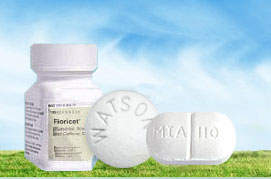|
For those who are still asking what Fioricet is prescribed for, there is one popular condition that this drug can effectively treat – tension headache. A combination of three active ingredients, namely, acetaminophen, butalbital, and caffeine, Fioricet works to treat the symptoms of tension headaches to alleviate the pain and manage the condition. The key to treating tension headaches lies in the formulation of Fioricet and its three active ingredients. Below is a discussion of the active ingredients of Fioricet and how they work to treat tension headaches:
Acetaminophen
Approved by the Food and Drug Administration in 1951, acetaminophen belongs to a class of drugs called analgesics and antipyretics. By itself and as a generic medication, acetaminophen does not require a prescription. Generic versions of acetaminophen are sold as liquid suspensions, chewable tablets, coated caplets, gel caps, gel tabs, and suppositories. Common dosages for these preparations are 325, 500, and 650 mg. Acetaminophen is metabolized and converted into other chemicals by the liver. As such, it is contraindicated for drugs that increase the activity of liver enzymes which promotes loss of acetaminophen. Taking doses of acetaminophen greater than what was prescribed can be toxic to the liver and may result in severe liver damage. Combined with alcohol or drugs, acetaminophen can potentially harm the liver.
For tension headaches, acetaminophen works by raising a person's pain threshold. This means that acetaminophen, by itself, does not eliminate the pain but rather increases a person's tolerance for it so much that is requires a greater intensity of pain before one feels it. Acetaminophen is also effective in relieving conditions which may trigger tension headaches like chronic pain caused by arthritis. It is as effective as a non-steroidal anti-inflammatory drug (NSAID) like ibuprofen in relieving the pain of osteoarthritis of the knee. Fever, which can trigger tension headaches, is also treated by acetaminophen. It reduces fever by triggering the body heat-regulating part of the brain to lower the body's temperature when it rises above normal.
Butalbital
Butalbital belongs to a group of drugs called barbiturates. These have sedating properties which slow down the central nervous system. While effective in treating anxiety and chronic pain, butalbital also has the tendency to be habit-forming which can result to drug dependence and ultimately, addiction. Butalbital should not be taken with alcohol and other substances that slow down the nervous system as this combination can result to heart failure and other possibly fatal side effects.
However, combined in appropriate amounts with acetaminophen and caffeine, butalbital proves to be an effective cure for tension headaches. Butalbital slows down the central nervous system which delays neurotransmitters from delivering pain signals to the brain. It also relaxes muscles and joints to relieve the tension.
Caffeine
A psychoactive stimulant drug, caffeine is among the most common drugs found in everyday substances like coffee and tea. It is also classified by the Food and Drug Administration as a "Multiple Purpose Generally Recognized as Safe Food Substance."
For tension headaches, caffeine works by constricting dilated blood vessels which trigger tension headaches. It also balances the effects of butalbital by promoting alertness and drowsiness.
By Kristine
Go to Drug Interactions » |





